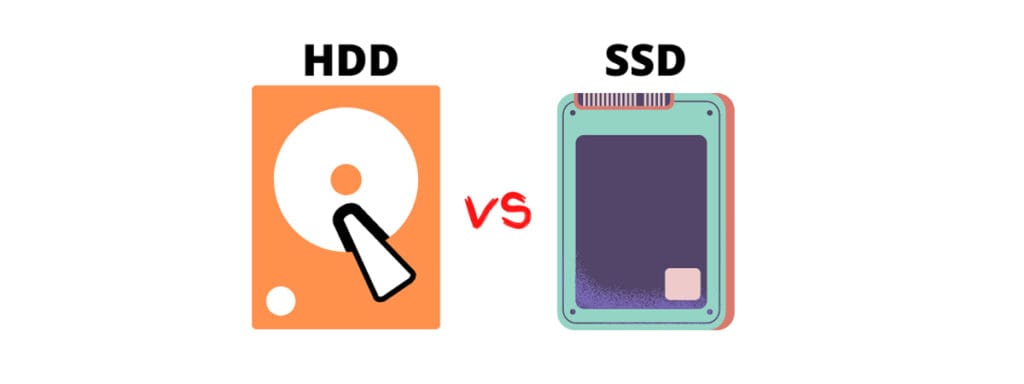SSD vs HDD Which Storage Option Is Best for You is a question that many tech enthusiasts and everyday users ponder when considering storage solutions for their devices. With the rapid advancement of technology, understanding the differences between Solid State Drives (SSD) and Hard Disk Drives (HDD) has become essential for making informed decisions. This overview will delve into the pros and cons of each storage option, helping you determine which one best suits your needs.
As we explore the unique features, performance metrics, and ideal use cases for both SSDs and HDDs, you’ll gain insights that will empower you to choose the right storage solution for your computing experience. Whether you’re a gamer, a professional, or simply looking to enhance your everyday tasks, the right storage option can significantly influence your device’s performance.
In today’s fast-paced world, the importance of effective communication cannot be overstated. Whether in personal relationships or professional settings, the ability to convey thoughts, ideas, and emotions clearly is vital. This article delves into the nuances of communication, exploring various forms, techniques, and tips that can enhance your communication skills.To begin with, communication can be broadly categorized into verbal and non-verbal forms.
Verbal communication involves the use of spoken or written words, while non-verbal communication encompasses body language, facial expressions, and even tone of voice. Both forms play a crucial role in how messages are received and interpreted by others.Effective verbal communication starts with clarity. When speaking or writing, it’s essential to choose words that accurately reflect the message you want to convey.
Avoid jargon or overly complex language, particularly when addressing an audience that may not be familiar with specific terms. This approach ensures that your message is accessible to everyone.Moreover, active listening is a key component of effective communication. It’s not enough to simply speak your mind; you must also be attentive to the responses of others. Active listening involves fully concentrating on what is being said, understanding it, responding thoughtfully, and remembering key points.
This practice fosters a sense of respect and understanding, encouraging open dialogue.Non-verbal communication, often underestimated, is equally significant. Body language can convey feelings and attitudes that words may not express. For instance, crossed arms might imply defensiveness, while maintaining eye contact can signal confidence and sincerity. Being aware of your own body language, as well as that of others, can greatly enhance your communication effectiveness.
Furthermore, the tone of voice can significantly affect the interpretation of a message. A friendly tone can make even critical feedback more palatable, while a harsh tone may make even positive news seem negative. Adjusting your tone to fit the context and audience is a vital skill in ensuring that your message is received in the intended manner.In addition to verbal and non-verbal communication, written communication is a cornerstone of modern interaction, especially in professional environments.
Emails, reports, and memos must be crafted with care, as they often serve as the formal record of communication. Clarity, brevity, and professionalism should guide your writing. Always proofread your work to minimize errors, as typos or grammatical mistakes can undermine your credibility.As we move deeper into the digital age, understanding the nuances of online communication has become increasingly important.
The rise of social media and instant messaging has altered the landscape of how we convey information. While these platforms allow for quick exchanges, they also come with challenges. Misinterpretations can arise easily due to the absence of non-verbal cues. Therefore, it’s crucial to be mindful of the language you use online and to consider how your message might be perceived without the benefit of face-to-face interaction.Another essential aspect of communication is empathy.
Being able to put yourself in someone else’s shoes enhances your ability to connect with others. Empathetic communication involves understanding the emotions and perspectives of others, and responding in a way that acknowledges those feelings. This not only strengthens relationships but also facilitates more productive conversations.Conflict resolution is another area where effective communication is vital. Disagreements are a natural part of any relationship, but how you handle them can make or break the connection.

Approaching conflicts with an open mind and a willingness to listen can help diffuse tension. Use “I” statements to express your feelings without placing blame, and focus on finding common ground.Furthermore, feedback is an integral part of communication, particularly in professional settings. Giving and receiving constructive feedback can lead to personal and professional growth. When providing feedback, aim for a balance between positive reinforcement and constructive criticism.
Be specific about what was done well and what could be improved, ensuring that your feedback is actionable.In conclusion, honing your communication skills is a lifelong journey that requires practice and reflection. By focusing on clarity, active listening, non-verbal cues, and empathy, you can enhance your ability to communicate effectively. In our increasingly interconnected world, these skills are invaluable for building better relationships, resolving conflicts, and fostering collaboration.
Remember, effective communication is not just about exchanging information; it’s about connecting with others and building understanding. As you continue to grow in your communication abilities, you will find that the impact of your words can be far-reaching, influencing both your personal and professional life in profound ways.
Quick FAQs: SSD Vs HDD Which Storage Option Is Best For You
What is the main difference between SSD and HDD?
The main difference lies in their technology; SSDs use flash memory for data storage, making them faster and more durable, while HDDs use spinning disks to read and write data, which makes them slower and more prone to mechanical failure.
Are SSDs worth the extra cost?
Yes, SSDs provide significantly faster performance, quicker boot times, and increased reliability, making them a worthwhile investment for most users, especially for those who value speed and efficiency.
Can I use an SSD and an HDD together?
Absolutely! Many users opt for a combination of both, using an SSD for the operating system and frequently used applications, while utilizing an HDD for larger files and backups.
How long do SSDs and HDDs last?
SSDs typically last around 5-10 years, depending on usage and write cycles, while HDDs may last 3-5 years but are more vulnerable to physical damage.
What should I consider when choosing between SSD and HDD?
Consider factors such as budget, storage capacity needs, speed requirements, and the type of tasks you will perform on your device when making your choice.






